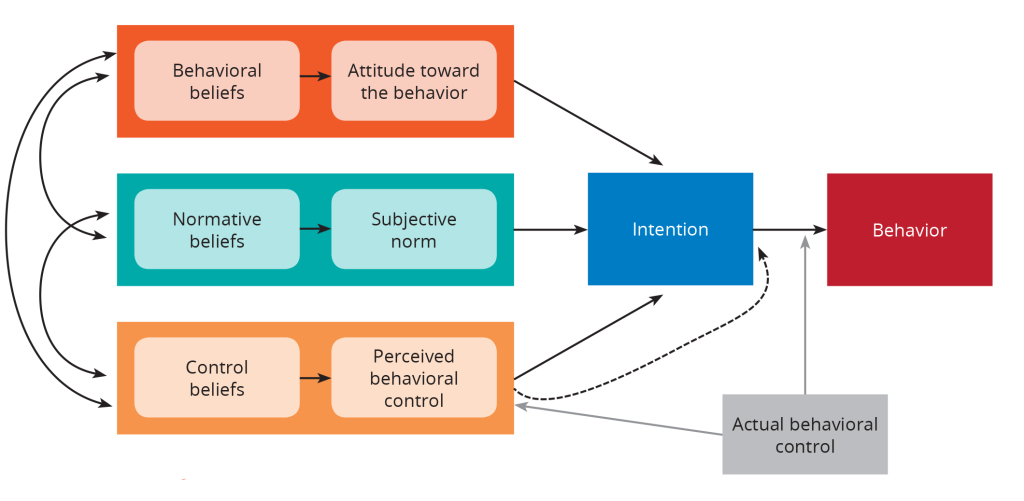Theory of Planned Behavior
What does the Theory of Planned Behavior tell us about behavior?
According to the Theory of Planned Behavior (the original insight of Theory of Reasoned Action), behavior is influenced by three elements:
Attitude: That the behavior will be beneficial to the individual. (For example, Awa feels that using contraception is a good way for her to prevent pregnancy.)
Subjective norms: The belief that other people think that the behavior is acceptable. (For example, Awa believes her partner, friends and family would support her using contraception.)
Perceived ability: The belief that one has the skills and capability to change behavior. (For example, Awa believes she is able to access and use contraception successfully to prevent unintended pregnancy.)
How can the Theory of Planned Behavior be applied?
The Theory of Planned Behavior can be used to change behaviors that are heavily influenced by peers and the close social network. This theory tells us that the close social network needs to be targeted to support the desired behavior change in the individual, as well as that it is important to highlight the short-term benefits of the behavior change to promote action.


